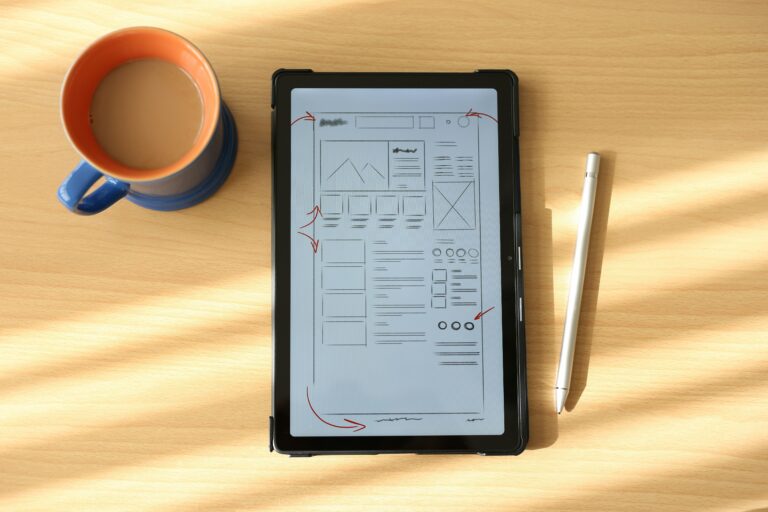Junior Product Manager
Are you looking for a Junior Product Manager job? We’ve written a guide to include information about the key roles and responsibilities, skills, objectives, salary and more.
A Junior Product Manager position is often named differently depending on the organisation that you work for. It could also be called:
– Junior Product Owner
– Product Owners
– Associate Product Manager
– Assistant Product Manager.
If you’re an employer looking to recruit a Junior Product Manager, please see our product recruitment services page, and the full overview of our services to employers. If you need to hire and would like our services, contact us today.
What is a Junior Product Manager?
A Junior Product Manager is an entry-level role within a product management team, typically found in technology companies and start-ups. This position involves assisting the senior product managers in the development and execution of product strategies. Junior Product Managers work closely with cross-functional teams, including engineering, design, marketing, and sales, to ensure the successful delivery of products that meet customer needs and business objectives.
In this role, Junior Product Managers gain valuable hands-on experience in various aspects of the product lifecycle. They participate in market research and analysis to identify customer trends and preferences, and contribute to defining product requirements and features. They also assist in creating and maintaining product roadmaps, tracking project progress, and coordinating tasks with different teams.
While working under the guidance of a Senior Product Manager, Junior Product Managers have opportunities to learn and grow their skills in product strategy, project management, and stakeholder communication. This role serves as an excellent foundation for a career in product management, providing valuable exposure to the end-to-end process of bringing innovative products to market.
Main responsibilities
The main responsibilities of a Junior Product Manager tend to include:
- Market research: Conducting in-depth research to understand customer needs, market trends, and competitive landscape, in order to identify opportunities for product improvement and differentiation.
- Product requirements gathering: Collaborating with stakeholders, including customers, sales, and internal teams, to gather and prioritise product requirements, ensuring alignment with the overall product strategy.
- UX design: Working with UX Designers to create wireframes, prototypes, and user flows that enhance the usability and overall user experience of the product.
- Product testing and quality assurance: Assisting in the coordination and execution of product testing activities, including usability testing, bug tracking, and quality assurance processes, to ensure a high-quality and reliable product.
- Product launch support: Assisting in the planning and execution of product launches, including developing marketing collateral, coordinating with sales teams, and providing training to customer-facing teams.
- Analytics and performance monitoring: Utilising analytics tools to monitor key product metrics, track user behaviour, and gather insights to drive data-informed decision-making and continuous product improvement.
- Competitive analysis: Conducting competitive analysis to stay informed about market trends, industry innovations, and competitor strategies, providing valuable insights for product positioning and differentiation.
- Product documentation: Creating and maintaining product documentation, such as user guides, release notes, and API documentation, to ensure clear and comprehensive information is available for customers and internal stakeholders.
Junior Product Manager objectives
The objectives for this role will differ depending on the business, product and industry. Generally speaking, typical objectives would include:
Customer acquisition
Objective: Drive customer acquisition by developing effective marketing strategies and targeting the right customer segments.
Importance: Acquiring new customers expands the user base and increases revenue opportunities.
Metrics: Customer acquisition rate, cost per acquisition (CPA), and conversion rate of leads to customers.
Feature enhancement
Objective: Continuously enhance product features based on customer feedback and market demands.
Importance: Improving product features enhances its value proposition and competitive advantage.
Metrics: Feature usage metrics, customer feedback ratings on feature satisfaction, and customer requests for new features.
Product scalability
Objective: Ensure the product is scalable to handle increasing user demand and accommodate growth.
Importance: Scalability is essential to accommodate a growing user base without compromising performance.
Metrics: Response time under load, server capacity utilisation, and user growth rate.
Customer retention
Objective: Improve customer retention by delivering exceptional customer experiences and fostering customer loyalty.
Importance: Retaining existing customers is more cost-effective and contributes to long-term revenue stability.
Metrics: Customer churn rate, customer retention rate, and customer satisfaction surveys.
Competitive differentiation
Objective: Identify and develop unique selling points that differentiate the product from competitors.
Importance: Differentiation helps attract and retain customers in a crowded marketplace.
Metrics: Market share growth, customer feedback on product differentiation, and comparative analysis of competitive features.
Product ROI
Objective: Maximise return on investment (ROI) by optimising product performance and cost-efficiency.
Importance: High ROI ensures the product’s financial viability and profitability.
Metrics: Revenue-to-cost ratio, product profitability analysis, and return on marketing investment (ROMI).
Junior Product Manager salary
In today’s market, a Junior Product Manager salary of up to £50,000 would be expected. Traditionally, those Junior Product Managers working within a city, especially London, could expect a salary at the higher end of this scale, but with the rise in demand from candidates for flexible working, employers are tending to level out this playing field.
There are many opportunities for progression with Product Management in the current market, with clear progression routes to C-level positions.
Junior Product Manager career development
The career trajectory for a Junior Product Manager can vary based on individual skills, experience, and organisational opportunities. Here is a common career trajectory for a Junior Product Manager:
Product Manager: In this role, individuals take on more significant responsibilities, lead their own product initiatives, and have increased autonomy in decision-making.
Senior Product Manager: In this position, they are responsible for overseeing a portfolio of products, managing a larger team, and playing a strategic role in setting the overall product vision and strategy.
Product Director or Head of Product: As Product Managers continue to gain expertise and demonstrate leadership capabilities, they may progress to roles such as Product Director or Head of Product. In these positions, individuals are responsible for driving the product strategy at a higher organisational level, managing multiple teams, and aligning product initiatives with business objectives.
Vice President Product or Chief Product Officer: These roles involve leading the entire product management function, shaping the long-term product vision, and collaborating closely with other senior leaders to drive business growth.
It’s important to note that career progression can also involve lateral moves, such as transitioning into specialised areas like product marketing, product analytics, or product strategy.
Junior Product Manager job description
A typical Junior Product Manager job description will read something like the below:
Company Overview:
We are a fast-growing tech scale-up company at the forefront of innovation in [industry/sector]. Our cutting-edge products and solutions are revolutionising the way [industry/sector] operates. As we continue to expand our business, we are seeking a highly motivated and talented Junior Product Manager to join our dynamic team and contribute to our exciting growth journey.
Responsibilities:
- Conduct market research and analysis to identify customer needs, industry trends, and competitive landscape, providing insights for product development and strategy.
- Collaborate with cross-functional teams, including engineering, design, and marketing, to gather and prioritise product requirements, ensuring alignment with business goals and customer expectations.
- Assist in the creation and maintenance of product roadmaps, ensuring timely delivery of product features and enhancements.
- Participate in the development of user stories, wireframes, and prototypes, working closely with UX/UI designers to create intuitive and user-friendly product experiences.
- Support product testing activities, including usability testing, bug tracking, and quality assurance processes, to ensure a high-quality and reliable product.
- Monitor key product metrics and analyse user data to derive insights for product optimisation and continuous improvement.
- Assist in product launch activities, including coordinating marketing collateral, providing training to customer-facing teams, and supporting go-to-market strategies.
- Stay informed about industry trends, emerging technologies, and customer needs to contribute innovative ideas and suggestions for product innovation.
Qualifications and skills
- Bachelor’s degree in a relevant field (e.g., Business, Computer Science, Engineering) or equivalent practical experience.
- Proven passion for technology and a strong interest in product management.
- Excellent analytical and problem-solving skills, with the ability to translate data into actionable insights.
- Strong communication and interpersonal skills, with the ability to collaborate effectively with cross-functional teams.
- Detail-oriented mindset, ensuring accuracy and quality in all aspects of product management.
- Strong organisational skills, with the ability to prioritise and manage multiple tasks in a fast-paced environment.
- Familiarity with Agile methodologies and product management tools is a plus.
- Previous experience or internships in product management, technology, or related fields is desirable but not mandatory.
Junior Product Manager skills
What do employers look for in a candidate? What skills will they be looking for in a candidate at interview stage?
Soft skills:
Analytical thinking: Employers value candidates who can think critically and analyse data to make informed decisions. This involves the ability to gather insights, identify patterns, and draw meaningful conclusions to drive product improvements.
Problem-solving: Junior Product Managers should possess strong problem-solving skills to identify and address challenges that arise throughout the product lifecycle. They should be able to approach complex problems with a structured and creative mindset, finding innovative solutions.
Adaptability: In a dynamic and fast-paced tech environment, adaptability is crucial. A person in this role should be able to quickly adjust to changing priorities, navigate ambiguity, and thrive in an ever-evolving industry.
Learning agility: Employers seek candidates who have a hunger for learning and can quickly acquire new skills and knowledge. Being open to new ideas, staying updated with industry trends, and continuously seeking growth opportunities are highly valued.
Product ownership: Candidates should demonstrate a proactive attitude, taking initiative, and being responsible for the success of their assigned projects.
Hard skills:
Data analysis: Proficiency in data analysis tools and techniques is crucial skills to interpret user data, identify trends, and make data-driven decisions. Skills in SQL, Excel, or data visualisation tools are highly desirable.
Agile methodologies: Familiarity with Agile methodologies such as Scrum or Kanban is essential. Candidates should understand the principles and practices of Agile development, including user story creation, sprint planning, and backlog management.
Wireframing and prototyping: Having the ability to create wireframes and prototypes using tools like Sketch, Figma, or InVision is valuable. Candidates for these roles should be able to effectively communicate product concepts and collaborate with UX/UI designers.
Market research: Strong market research skills enable Junior Product Managers to gather and analyse data on customer needs, industry trends, and competitive landscape. They should be proficient in conducting market research using various methodologies.
Product roadmapping: Candidates should have experience in creating and maintaining product roadmaps. Proficiency in product management tools like JIRA, Trello, or Asana, and the ability to prioritise product features and plan releases are essential.
Product management interview questions
Read our guide to the top 75 product management interview questions, that are often asked at interview by employers.
Junior Product Manager FAQs
- What is a Junior Product Manager?
- A Junior Product Manager is an entry level position within Product Management. This role is responsible for delivering improvements to products and managing timelines for individual tasks, working cross functionality to ensure this happens smoothly. Often Junior Product Managers will also be responsible for reporting of KPIs, providing product support and for developing existing products.



